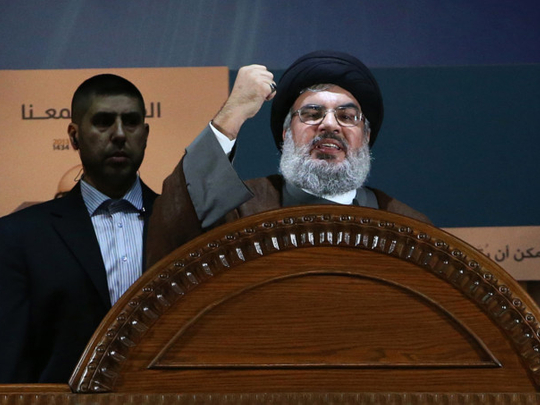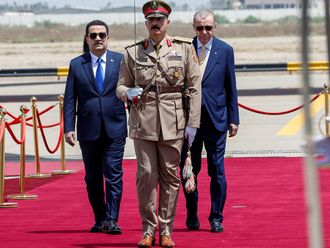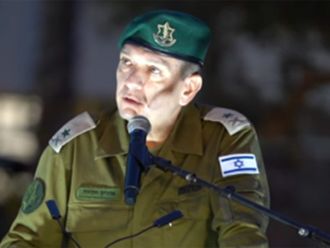
Beirut: Even if his presentation was utterly confused, Foreign Minister Gebran Bassil affirmed to a group of expatriates in Los Angeles several days ago, that Lebanon was a political participant in the coalition fighting Daesh, because “we are in heart of the battle.” He clarified that “Lebanon takes and does not give, because we do not own weapons or jets to contribute with in the attacks on Daesh.”
On Tuesday evening, Hezbollah chief Hassan Nasrallah rejected his ally’s affirmation, declaring: “We are against American military intervention and against the international coalition, whether the target is the (Syrian) regime or Daesh.” He continued: “Our principled stance does not change from one arena to another and we don’t accept that Lebanon becomes a member of this coalition,” though he said nothing about Iranian interventions in Iraq and Syria.
Although Nasrallah explained his position in classic Hezbollah terminology:“We are against the coalition because America is the mother and source of terrorism and because it is the ultimate supporter of Zionist state terrorism”—it was clear that he made a link between the latest military attacks in Syria and the Damascus regime, as he further disagreed with Beirut’s dissociation policy, which he perceived as posing “threats to Lebanon.” Adding insult to injury, Nasrallah overlooked that Hezbollah accepted the 2012 disassociation policy, which was approved by the Najib Miqati government.
At a time when his own militia was heavily involved in the Syrian Civil War, and in light of bloody confrontations in such spots as Arsal and other cities, Nasrallah asserted that Lebanon “does not need” to be part of the coalition against Daesh, because it can easily fight terrorism as it has in the past “through the army, security forces and perseverance.”
The reference to the Lebnese army was especially painful given that three soldiers were beheaded by Daesh and/or Jabhat Al Nusra terrorists after they were abducted on August 2, 2014, while at least 22 men in uniform were still held as hostages. Nasrallah denied accusations that his militia was preventing the government from negotiating with militants to secure the release of all abductees. On the contrary, he declared that it was “normal to engage in negotiations” and gave the example of the talks with Israel over captives and the bodies of martyrs. Still, he warned that Beirut ought to negotiate through intermediaries from a position of strength and that mediators as well as the kidnappers “must be informed of Lebanon’s cards of strength” without defining what those might well be though he amplified his ideas by recommending the government to say “we won’t negotiate under the pressure of killing and slaughter.” The Secretary-General lamented that Lebanon “suffered political humiliation for weeks due to some political practices,” and called on rival factions to keep their powder dry, even if Sunni clerics ensured the release of 7 abductees to date.
Ironically, and for all his calls to join hands and fight in unison against foes, parliament failed to ensure a quorum yesterday to elect a president of the republic, postponing for the 13th time its constitutionally mandated duty to October 9.











